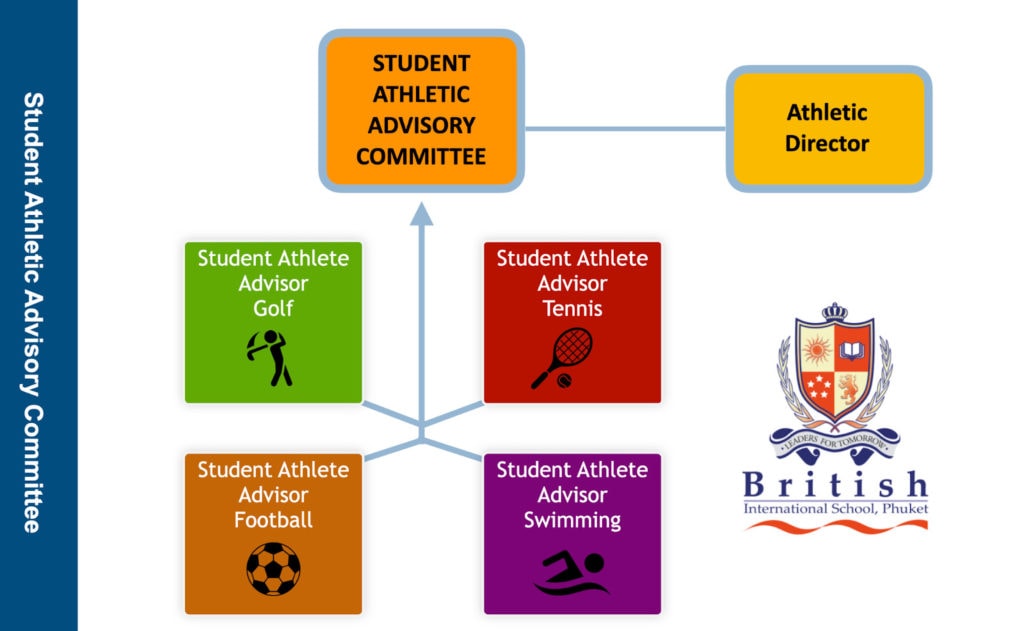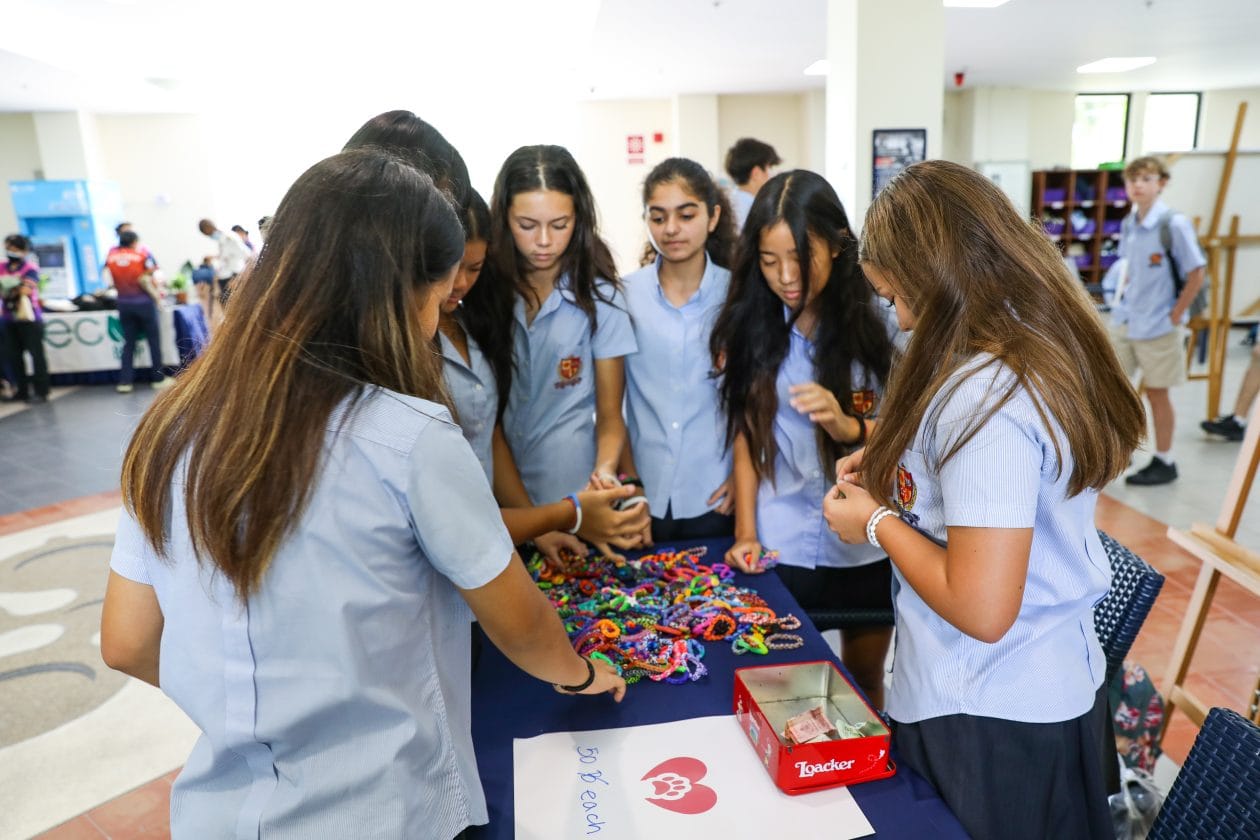Wellbeing in Secondary
Wellbeing Education
Our core business is to ensure students are able to access the excellent quality learning opportunities at our school on a daily basis and in a safe and supportive environment. Student wellbeing is integral to student achievement in schools, and at BISP we consider equally the cognitive, social, emotional, spiritual and physical growth of students.
We have a range of Tutors, Counsellors and Coaches who work with students to develop self-confidence and self-efficacy, and guide individuals to adopt a range of strategies to support personal and academic growth e.g. mindfulness-based activities; mind-management techniques etc. We use the G.R.O.W. model of coaching as the foundation for most conversations:
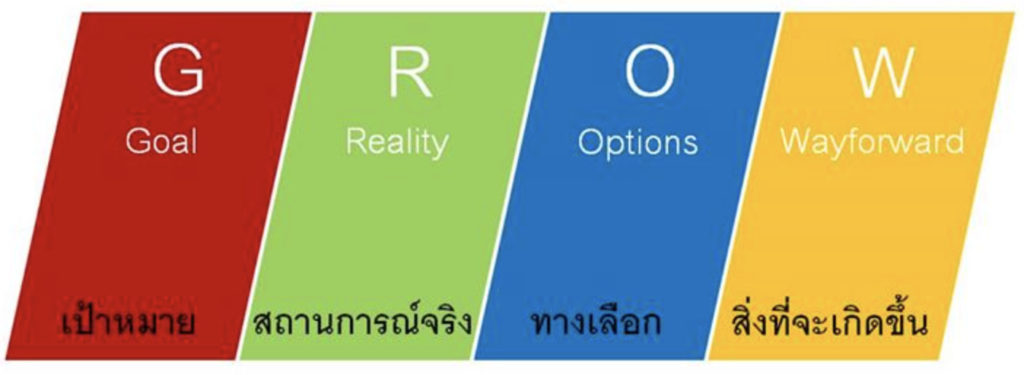
Coaching model
Specifically our coaches work alongside students as follows:
Subject Coaching: Additional support and coaching in a subject specific area. This is usually led by the Head of Department who can provide specialist input into the coaching needs of the Student.
Assertive Coaching: More intensive coaching around issues that arise in a number of subject areas, including support with meeting deadlines, quality of homework, making notes and attitudes to learning. Assertive coaching is supported by the Additional Educational Needs team.
Emotional Coaching: Coaching here aims to support students who might be stuck in terms of their levels of wellbeing and general happiness. This might include friendship issues, health concerns or a lack of motivation in and out of the classroom.
“[Assertive] coaching is a powerful tool for personal change and learning. At the core of the coaching approach is the facilitation of learning using active listening and inquiry and providing appropriate challenge and support. There is already a shift in the teacher role in educational settings from instructor to facilitator”
– Mary Devine et al. / Procedia – Social and Behavioral Sciences 93 ( 2013 ) 1382 – 1389
“Seeing my ‘emotional coach’ helps in being able to express emotions that are difficult to share, provides a pathway of relief and helps to see different views of situations in a more positive light.”
Wellbeing Curriculum
The Wellbeing Curriculum is built upon our 5 interconnected pillars to facilitate opportunities to engage with our school values. These foundation pillars – Physical & Mental Wellbeing; Emotional Wellbeing; Social Wellbeing; Spiritual Wellbeing; Cognitive Wellbeing – provide students with opportunities to develop skills and understanding necessary to flourish, and lead a purposeful and balanced life.
- Sexual health and relationships education
- Substance misuse
- Nutrition
- Sleep
- Safeguarding
- Mental Health
- Managing risks/choices
- Gratitude
- Utilising character strengths (VIA)
- Self-regulation
- Self-image
- Self-esteem
- Interpersonal connectedness
- Diversity and Discrimination
- Conflict resolution
- Personal safety
- Mindfulness
- Meaning, purpose and direction
- Global citizenship
- Diversity and intercultural understanding
- Coaching process
- Personal pathways
- Career education and guidance
- Student agency and leadership
- Goal setting
Student Agency and Leadership
Senior Student Leaders collaborate to enrich and enhance opportunities for growth for all students in Secondary School, and each represents a ‘portfolio of interest’. A programme of events, activities and celebrations is planned collegiately and implemented across the calendar year (January-December). Student agency, ownership and teamwork are essential, however, each Student Leader is supported and guided by a senior member of staff.
The Head Students also oversee the organisation of Year Group Representatives in the Middle and Upper Schools and facilitate opportunities to give feedback to the Student Leadership Team and Senior Staff. Head Students coach and support Year Group Representatives to develop their leadership potential.
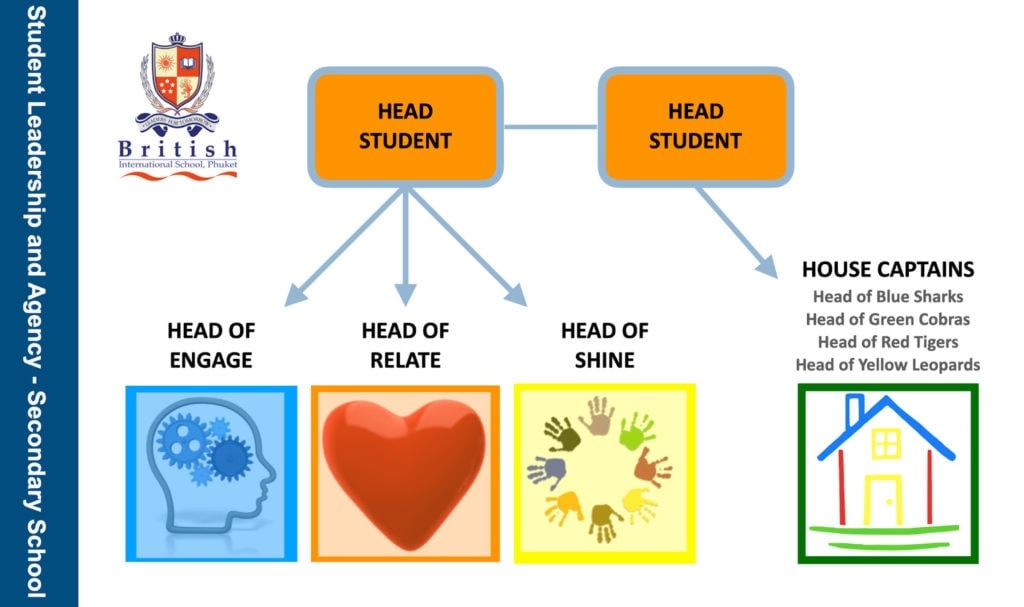
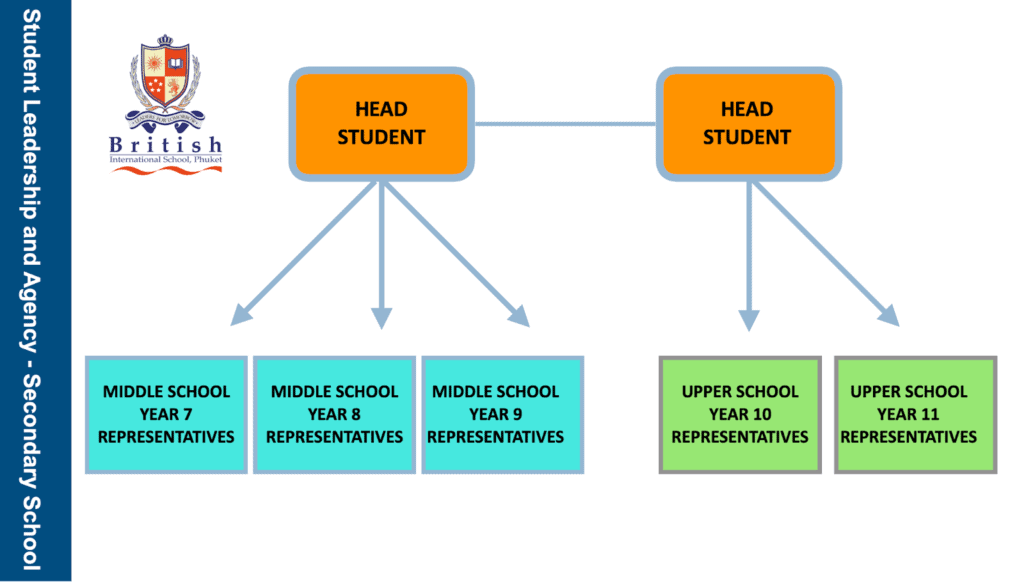
Student Athlete Advisory Committee (SAAC)
Our student-athlete advisory committee (SAAC) is a committee made up of one senior student-athlete from each Academy Sport (Golf; Tennis; Swimming; Football), who assemble to provide insight into the student-athlete experience.
